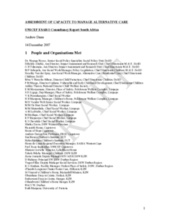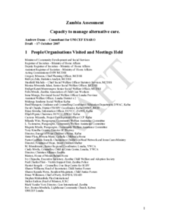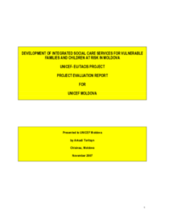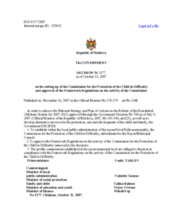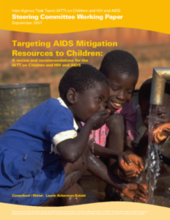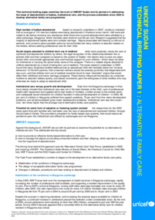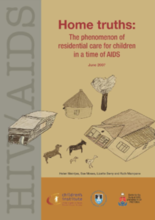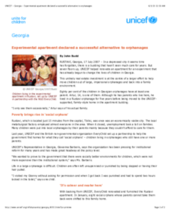Displaying 1581 - 1590 of 1798
Country level evaluation of contributing factors to the establishment of an alternative care system.
Country level evaluation of contributing factors to the establishment of an alternative care system.
Project Evaluation Report for UNICEF Moldova
On 31 October 2007, the Government of the Republic of Moldova issued Decision No. 1177 on the setting up of the Commission for the Protection of the Child in Difficulty and Approval of the Framework Regulations on the activity of the Commission.
This Implementation Handbook offers explanation and analysis of the articles in the Convention on the Rights of the Child. The aim of the handbook is to be a tool for implementation of the Convention on the Rights of the Child (CRC) and to provide additional insight and interpretation.
Evaluates AIDS mitigation and targeting with child sensitive objectives and global guidance
Examines the work of UNICEF Sudan and its partners in addressing the issue of abandonment of babies, institutional care, and the process undertaken since 2003 to develop alternative family care programmes.
A report on residential care in South Africa in the context of AIDS and an under-resourced social welfare sector.
A resource site based on the first Regional Consultation on Child Care System Reform held in Sofia in early July. The consultation brought together 120 key social welfare delegates from Albania, Bosnia & Herzegovina, Bulgaria, Croatia, UN-administered Kosovo, FYR Macedonia, Montenegro, Romania, Serbia and Turkey.
In Georgia, UNICEF and EveryChild have teamed up to place children in need of alternative care in small, supervised apartments as an alternative to orphanages.

